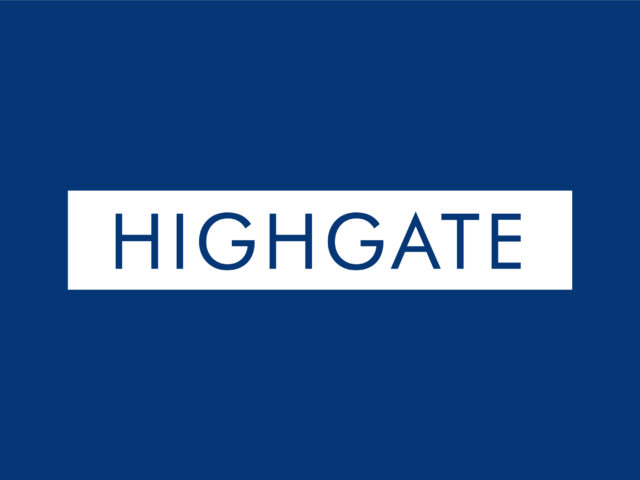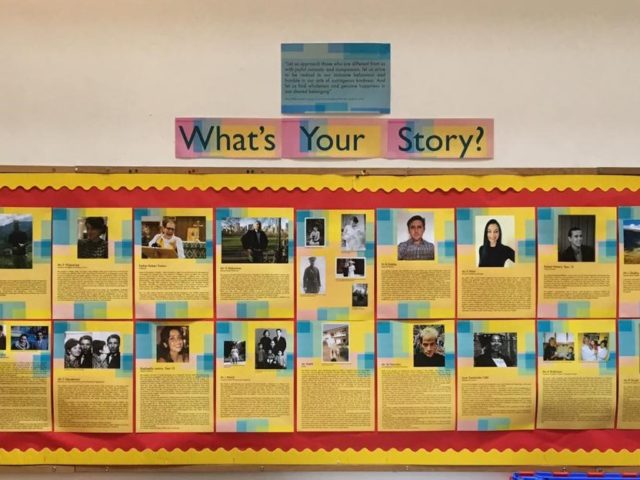It was when I was just getting up from a lengthy, if productive, meeting about our long-term estate plan that I felt I should own up.
An experienced and sharp-witted professional had turned to me and told me that he read my blog. Now this is someone whose firm does indeed do business with Highgate School but clearly not to the exclusion of other schools and colleges across the land. It was very nice to hear that he turned to Highgate’s website, rather than to others, to be kept up to date on matters educational, and that he found those pages informative and so on. It was then that I should have admitted that when the author of these blogs is pressed hard by events or a lack of inspiration, he turns to his wonderful team of colleagues for ideas, for guidance and for editorial opinion: what you read has had the uncredited benefit of others’ similarly sharp-witted, eagle-eyed attention.
And so it was a week or two or go when I was on the keyboard tapping out thoughts about seeing our children’s future plans with microscopes (bad) and telescopes (better): I used the term ‘the creatives’, by which I meant art, history of art, theatre studies, design and music, only to receive an anguished e-howl from a colleague. Wasn’t I falling in with the narrative that there were ‘creative’ and thus ‘non-creative’ (sterile?) subjects when, what I meant, surely, was that creativity is an attribute which promotes good learning and discovery in all disciplines. The term I needed, inadequate though it may still be, is ‘expressive arts’. I stand corrected.
All of which led me to ponder the issue a bit further, not least at this time in a school’s cycle when parents’ enquiries (about school choice) force us into some pretty binary oppositions: ‘Is your school good for science or the arts?’ ‘Are you an academic school or one that promotes extra-curricular achievement?’ Michael Gove’s educational reforms, including the introduction of the E-Bacc measure, whereby a pupil needs to have studied maths, English, a language and one of a (very) short list of humanities, would seem to have fed the belief that future success beyond school is predicated on a hierarchy of subjects and associated intelligences, so a very binary approach to the curriculum. Not on the E-Bacc list? Then you must be a soft subject? Soft? So you’re not going to be employable. Worried about your future employability? Then go for a smart option.
It’s so easy to see how it happens. And of course we should be nothing other than pleased to see young people and their parents and their teachers trying to make sense of what we do now in terms of what we’ll be good at in the future. But let’s get back to what employers tell us they want: so-called soft skills – the ability to work collaboratively, to resolve problems in a team, to find creative solutions, ingenuity, flexibility, adaptability, confidence. Let’s ask ourselves how young people develop those skills best, and we’ll quickly find that it’s in being enabled to pursue subjects in which they have a fiery, self-propelling interest, stimulated either by a future in the field or in the intrinsic subject and its activities itself. Employers want young people who will go the extra mile, use their discretionary time and effort, work harder and get things finished. All of us know we’re more likely to do these things, work in this way, if we’re fired up and engaged, if we are passionate.
So, if we need our young people to have an experience of pushing themselves and working harder than we have asked them to do because they love what it is they’re doing, then we need to clear the decks of our views of a subject, however strongly forged they were in our own experience. In a school system which allows young people early choices, we can’t let promote or belittle any subject: all subjects, equal value; no hierarchy; nothing soft.
But for your hard-nosed, savvy critic, you need evidence that each subject gives similar opportunities for opportunity-enhancing intellectual and personal development. And currently I see the need to bang the drum for the power of the expressive arts (as defined above!) to get our young people jobs and fruitful futures. A few years ago I was on the case for engineering, and doubtless it’ll be the case for something else. But for now, if you’d like more on why your son and daughter can only make smart choices, click here to read more on choosing life!
Adam Pettitt, 31 January 2018

